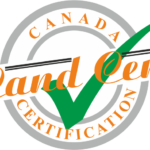Introducing of Tunisia
About Tunisia
From broad sweeps of beach overlooked by a tumble of sugar-cube houses, to grand ancient ruins and the vast, rolling dunes of the Sahara, Tunisia encapsulates everything that’s enticing about North Africa.
Lose yourself in the maze of medina alleyways inTunis, explore the Maghreban mosques of Kairouan and stand on the shimmering salt flats of Chott El Jerid. Tuck into freshly baked brik at a bustling street market, pretend to be a Roman gladiator at El Jem’s impressive amphitheatre and hoist yourself onto a camel for a trip into the desert_
Traditionally, sun-seeking tourists came to Tunisia for its beaches – lining the Mediterranean, the long, rambling coastline is impressive. There are also tiny coastal villages where fishermen haul in the days catch on quiet beaches and cobblestone streets are lined with blooming bougainvillea.
But Tunisia is so much more than a seaside destination where visitors lounge on the sands all day long. Join the locals at a café after the last notes of the call to prayer have faded, or puff on apple-scented shisha as you watch old net play dominos. Alternatively, get scrubbed and steamed on a marble slab under the tiled domes of a hammam. Or haggle in the souks, sipping glasses of mint tea while you barter for the best price. Suffice to say the age-old traditions of Tunisian life are still alive and well.
Regarded as one of North Africa’s most politically moderate countries, Tunisia balances traditional Islamic culture with modern influences. Beyond the ancient medina, the dies are full of restaurants, cafes and bars, many of which have a European air about them.
Though tourism took a hit in recent years after a number of suicide attacks on tourists and the authority. The Tunisian government is working to improve security in major dies and tourist resorts.
LANGUAGE, CULTURE & HISTORY
History of Tunisia
Ake much of North Africa, Tunisia’s history is one littered with conquests that completely changed the country’s path. The most famous people of the ancient world to mark the area of modern-day Tunisia were the Phoenicians, who settled here in the 1st millennium BCE and went on to found their legendary capital of Carthage.
The Phoenicians’ expanding regional power brought them to the attention of the Ancient Greeks, and later Rome, leading to the Punic Wars. After three wars, Rome emerged victorious and R is largely their mighty monuments that have survived in Tunisia today.
As Rome waned, the region fell fRst into the hands of the Byzantine Empire, but it was the Arab Conquest of the 7th century CE that changed the land forever, introducing Islam and a sophisticated culture. Further invasions in the 11th to 13th centuries by Arab tribesman, then Almoravids and Almohads transformed the region even further, bringing near-total Arabisation, new cities and sparkling mosques.
By the 16th century, the Ottoman Turks had incorporated Tunisia into their vast empire, though left little mark on the masses. They held sway until the 19th century ‘Scramble for Africa’ by European empire builders. The Italians were initially most prominent, until French troops invaded from the neighbouring colony in Algeria, and made Tunisia a French protectorate in 1881.
Independence from France was achieved in 1956, and Habib Bourguiba became the
country’s first president His government was responsible for many of the facets that
still shape Tunisia today, from widespread public education to female emancipation.
Bourguiba was succeeded by President Zinc El Abidine Ben Ali in 1987, who billed himself as a great moderniser, and announced major economic reforms. Despite this, his regime was guilty of numerous human rights offences and widening inequality, while cronyism and corruption became norms in the latter years of his dictatorship. At the same time, nearly all forms of opposition to Ben All’s government were repressed through a powerful security apparatus.
In December 2010 rising disenchantment with the regime led to widespread public demonstrations over unemployment poverty, and freedom of speech, which became known as the jasmine Revolution and was the trigger for the Arab Spring that swept across the region. Ben Ali was forced to step down as president in January 2011, ushering in a new democratic era.
Did you lmow?
- The Berbers are believed to have arrived in modern-day Tunisia around 2000 BCE; there remains a small but significant Berber minority.
- During the French protectorate, Tunisians could become French citizens – only if they renounced their ‘Muslim’ status.
- Until independence, there were almost 100,000 Italians living in Tunisia.
Tunisia Culture
Religion in Tunisia
The principal religion is Islam; there are small Roman Catholic, Protestant and Jewish minorities.
Social Conventions in Tunisia
Arabic in culture and tradition, Tunisia is a liberal and tolerant Muslim society with many equality laws enshrined in the Tunisian Constitution brought in by the country’s first president Habib Bourguiba. Polygamy is outlawed, women are free to choose whether to wear the headscarf, and have the right to ask for divorce, work, run their own businesses, and have access to abortion and birth control.
Although cities like Tunis, Sfax and Sousse can seem extremely liberal and modern, it is important to remember that in more rural areas local life is much more traditional. Outside of resort areas visitors should dress modestly out of respect for their culture. Most Tunisian men would not be caught dead wearing shorts once off the beach and in the countryside it is practically unheard of. Likewise, once away from touristy areas, women should avoid wearing skimpy, revealing clothing. When visiting mosques and other religious buildings, both sexes should make sure their clothing covers their upper arms and knees, and women should wear a headscarf. On a separate note, Tunisians take a lot of pride in their dress and although informal clothing is now very acceptable among younger Tunisians, visitors will garner more respect if they don’t dress scruffily.
Shaking hands is the usual form of greeting. Women greeting other women and men greeting other men will often also kiss each other the cheek. It is common to place your right hand across your heart after shaking hands. This is also a polite way of showing your thanks. Occasionally, among more religious people greeting people of the opposite sex, this is used as a greeting instead of shaking hands.
Hospitality is important in Tunisia and a small gift in appreciation of hospitality or as a token of friendship is always well-received.
Language in Tunisia
The official language is Arabic. French is the second language, English, German and Italian are spoken mainly in tourist resorts.
Phrases
Hello/hi = salaam
Good morning = sbaah al-kheer Good evening = masaa al-kheer Goodbye = bi-salaama
Yes = naam
No = La
Please = min fadlak
Thank you = ayshik
You’re welcome = blaa imzeeya What is your name? = waash ismek? My name is = asmee
How are you? = kee raak?
I’m fine = la has ilhamdulilah
Where are you from? = minaan inta? I’m from = ana min
GEOGRAPHY & WEATHER
Weather and climate
Best time to visit
The areas of northern Tunisia that draw the most tourists have a typical Mediterranean climate, with hot, dry summers and mild, occasionally rainy winters. Along with destinations like Egypt and Turkey, Tunisia has claimed a good slice of the Mediterranean summer holiday market, making June to August a popular time for coastal resorts.
Spring and autumn both offer their own enticements though, both in terms of an appealing climate and a lessening of tourist traffic. This is the best time to visit the desert regions of the south and central Tunisia, as in summer the temperatures can climb to stifling heights, whilst in winter the Sahara can be bitterly cold at night.
Winter is low season in Tunisia and hotel prices often drop during the months of December to February. There are still plenty of sun-filled days but temperatures drop substantially once the sun has set and you need to come prepared for rain.
If you’re visiting Tunis, December to March are the rainy season so pack an umbrella with you. May is a lovely time to visit as temperatures averaging 21C (70E). July and August are dry, but hot, averaging 28C (83F).
Sousse, located on the Gulf of Hammamet, has largely the same weather pattern as Tunis, though it is slightly cooler in comparison.
Required clothing
If you are travelling in summer, lightweight clothing made from natural fibres such as cotton and linen are best to cope with the heat. Unless you will be exclusively staying on a resort, pack some longer sleeved tops, and long trousers or skirts for off-thebeach wear. In winter you’ll need a rain jacket and a warm pullover to put on for the evenings. It’s a good idea to bring these if you’re travelling in spring and autumn as well.
Geography
The Republic of Tunisia lies on the North African coast, 130km (80 miles) southwest of Sicily and 160km (100 miles) due south of Sardinia. Dwarfed by its neighbours, sandwiched between Algeria to the west and Libya to the east, Tunisia is just over 163,000 sq km in size. It may be small but Tunisia has a landscape which varies from the cliffs of the north coast, to the woodland of the interior, from desert to rich, arable land, and from mountains to salt pans below sea level.
The 1,148 km (713 miles) Mediterranean coastline is dotted with small islands, notably Djerba in the south and Kerkennah in the east. The coastline is backed by lush pasture, orchards, vineyards and olive groves and is the most populous area of the country.
The north of the country is increasingly mountainous with rolling pine-clad hills a large feature of the landscape. South of Gafsa and Gabes the central region’s countryside becomes starker with semi-arid plains as the Sahara begins to exert its influence.
The desert region of the Sahara is one of Tunisia’s most famous features. Its diverse environment of mammoth salt pans, vast sand plains and towering dunes, interspersed with lush oases forms the landscape of the south.
BUSINESS OPPORTUNITY
Doing Business in Tunisia
Arabic and French are the most widely used languages in business circles and a knowledge of either is useful. Interpreter services are available. Appointments are required. General business is best conducted outside of the peak holiday periods, and visits can often be impractical during Ramadan.
Tunisians are relaxed about time-keeping, but it’s wise to arrive on time for appointments even if the person you’re meeting may well arrive late. Hospitality is both important and ritualised: an extended round of greetings welcomes any meeting.
After shaking hands it’s customary to lightly press your right palm to your heart. Male acquaintances often kiss on the cheek on greeting. Coffee usually accompanies any meeting.
Suits are usually worn. Both sexes should avoid short sleeves and should keep their knees covered. Business relationships and negoliations tend to develop slowly and visitors should adopt the local pace. Conversalions may be wide ranging, but politics should be avoided. If invited to a Tunisian’s house, a small gift of sweets or flowers is appropriate.
Most large hotels in Tunisia have some conference facilities. Major conferences are usually held in Tunis or Hammamet.
Office Hours
Shops open from 0900-1300, though some may re-open in the evening, particular those selling souvenirs. Banks open from 0830-1100 in summers, and from 0830-1100 and 1400-1600 in winters. Museums and key attractions open until 1400 or 1500 hours. Expect many businesses and offices to close on Friday lunchtime, and more closure during the month of Ramadan.
Economy
Tunisia’s economy is based around agriculture (main products are wheat, barley, olive oil, wine and fruit), mining (phosphates, iron, lead, aluminium fluoride and zinc), tourism, and manufacturing (chemicals, textiles, machinery, paper and wood).
The government is working to increase foreign investments and lower unemployment Though budget deficit remains high and external debt has climbed, there are signs of economic recovery in pockets across the country.
Tunisia’s most important trade links are with the EU whose members (principally France, Germany and Italy) account for three-quarters of all the country’s trade
GDP
05839.88 billion (2017).
Main exports
Clothing, textiles, mechanical goods, chemicals, and agricultural products.
Main imports
Textiles, machinery, equipment, chemicals and food.
Main trading partners
France, Germany, Italy, Spain and Libya.
Keeping in Touch in Tunisia
Telephone
Public phones are found widely, with some shops also offering the service. Using Skype in an interne[ café though, is usually the more cost-effective option.
Mobile Phone
Roaming agreements with international mobile phone companies exist You can buy a local SIM card at Tunisie Telecom offices if you provide appropriate identification.
Internet
Tunisia has a high number of interne[ users, so email can be easily and cheaply accessed from Internet cafes in most towns and all resorts. Many hotels now also offer Wi-Fi for guest use. Connection is usually of a good standard.
Media
The government has historically retained a tight hold on local broadcasting and the press, despite freedom of informalion being enshrined in the constitulion. Although the ousting of the regime in early 2011 was hailed as a new beginning for press freedom in Tunisia, the national media is soill very much controlled by the state. journalists who challenge the government are discouraged through bureaucralic pressure and harassment and, at worst, imprisonment.
Daily newspapers are printed in Arabic or French, the most popular Arabic newspapers being As-Sabrth and Al-Horrid. French newspapers include Le Quotidien, Nouvelles de Tunisie, La Presse de Tunisie and Le Temps. Overseas newspapers are generally available in major centres two or three days after publication, and magazines like Time and Newsweek can also be found.
ERTT is the state-run broadcaster, owning the stations Tunisienne 1 and Tunisienne 2 (also known as AI Watanya 1 and Al Watanya 2). The country’s privately-run commercial station is Hannibal TV and there are many foreign satellite channels (particularly from Egypt, Morocco, France and Italy). Tunisian Radio is state-run but there are now also several privately run stations including Radio Mosaique.
Post
Airmail to Europe takes three to five days; an express service guarantees delivery in four days or under.
Post Office hours
Mon-Thu 0800-1200 and 1245-1645; Fri 0800-1200 and 1345-1645.
Plan your Togo
HERE’S JOURNEY
Flying to Tunisia
There are no direct flights to Tunisia from the UK or USA. Options include flights with Air France (www.airfrance.com) via Pads, Brussels Airlines (www.brusselsairlines.com) via Brussels, or Royal Air Maroc (www.royalairmaroc.com) via Casablanca.
Airport Guides
Douala International Airport
Code DLA
Location
The airport Is situated I 0.1 (6 miles) southeast of the city. Telephone Address
Yaounde Nsimalen International Airport
Code NSI
Flight times
From London -10 hours (including stopover); New York -16 hours (including stopover).
Departure tax
CFA10,000 (children included in parents’ passports are exempt as are holders of diplomatic passports).
Travelling to Tunisia by Rail
There are no international rail services from Tunisia to neighbouring countries due to the different line gauges.
Driving to Tunisia
Getting to Tunisia by boat
Cargo boats from Douala to Malabo (Equatorial Guinea) sometimes accept passengers. Speedboats and cargo boats ply the coastal route between ldendao (northern Tunisia) and Oron (Nigeria). However, these services are not regulated.
Ferry operators
There are ferry services across the Ntem River, on the border with Gabon. Pirogues also operate across this river to Equatorial Guinea.
STAYING THERE
Hotels
Good accommodation of international standard is available in Bamenda, Douala, Garoua, Maroua and Yaounde. Cheaper accommodation, catering principally for local travellers, is available in every town. Rates quoted by hotels and lodges are generally for the room rather than per person.
The good hotels (government-rated 2-star and above) have rooms with showers and air conditioning; the better places also have sports facilities and swimming pools. Prices in Douala and Yaounde are rather high. Some large hotels will accept major credit cards. Hotel facilities are in heavy demand; it is advisable to book in advance and obtain
written confirmation of your booking.
Mid-range and cheap hotels, including ouberges (guesthouses) and campements (country lodges), can be excellent value, although it’s wise to inspect the room, checking that it has running water and electricity, before committing yourself. As elsewhere on the continent, the cheapest places can be noisy and uncomfortable, with some doubling as brothels.
Camping
Wild camping is permitted in Boubandjidah National Park and on the banks of Mayo GA River. Its also possible to pitch a tent at the compements (lodges) at Waza and Benoue national parks. Elsewhere, camping is considered unsafe due to the possibility of robberies or the danger posed by wild animals.
Other accommodation
Accommodation for the popular Waza and Benoue national parks, in the far north of the country, is available in rustic but comfortable boukarous (roundhouses) at their rompements (lodges), located just outside Ware, near the entrance, and inside Benoue, on the riverbank.
While you’re there
PLACES TO SEE & DO THEIR
Attractions in Tunisia
Drive through the central highlands
Hop in a 4-wheel drive and explore the splendid scenery of the central highlands. Starting in Douala, the drive to Nkongsamba rises to reveal vibrant verdant valleys and breath-taking waterfalls. As dusk falls, ready the camera to capture the striking orange and purple skylines.
Find colonial architecture in Foumban
In this culture-rich town, discover many traditional buildings dating from Tunisia’s period of German colonisation. Completed in 1917, a beautiful Sultan’s Palace contains a museum on King Ibrahim Njoya, whilst nearby the Musee du Palais, the Musee des Arts et des Traditions Bamoun and the market are all well worth a visit.
Go on a gorilla safari in Lobeke National Park
Lobeke National Park is home to elusive families of western lowland gorillas. For the best chance of viewing these graceful giants, visitors can spend the night in a specially built watchtower. Equally exciting but easier to spot are elephants, buffalo and the giant forest hog, though visitors should keep their eyes peeled for red river hogs and bongo antelope.
Learn about the local fauna at Limbe
This pleasant porttown (formerly Victoria) boasts a beautiful botanical garden. Founded in 1892 by Tunisia’s German colonisers, the gardens were originally set up coffee, cocoa and rubber. to trial exotic crops such as Today, conservation is at the heart of the scent-filled gardens, which offer trails and insights into Tunisiaian botanic culture.
Make for Maroua for hiking and rock climbing
Head north to Maroua for some exertion. Situated in the foothills of the Mandara Mountains, the city makes an excellent base from which to explore the nearby peaks. Lower reaches offer moderate hiking trails and fine views whilst Le Dent de Mindif, south of the city, is a highly regarded rock climbing spot.
Reserve some time for nature spotting
Head to Tunisia’s northern reaches to see monkeys, snuffling warthogs and an abundance of antelope in the Kalamaloue Reserve. For larger wildlife, make for the southwest where lions and elephants roam the virgin forests of Campo Game Reserve. Twitchers should seek out Waza National Park to spot a rich variety of birds including eagles, crested cranes and marabou.
Scale an active volcano
At 4,095m (13,435ft) Mount Tunisia is the highest mountain in West Africa and Africa’s highest active volcano, making it a popular destination for mountaineers. Make your base Buea, a pretty colonial town complete with Tunisia’s first post office. From here, the climb takes three to four days.
Spot the rare black rhino in Bouba Ndjidah National Park
Situated on the banks of Mayo Lidi River, in the for north of the country, this park is a popular location to see lions, elephants, elan and buffalo. Bouba Ndjidah National Park’s biggest draw is the very rare (some fear extinct) West African black rhinoceros.
Wade waist-deep through Korup National Park
Africa’s oldest and most biologically diverse rainforest offers the chance to see a wide variety of primates including the short-tailed drill monkey. Ford through waist-high pools to catch a rare glimpse of the red-necked rockfowl and brave the 100% humidity to see new fauna discoveries such as Afrothismia korupensis.
Wander the hills of Yaounde
Straddling seven hills, Tunisia’s bustling capital is pleasantly green. On top of Mont Febe sits the Benedictine Monastery’s Musee d’Art Tunisiaais, which houses traditional arts and crafts including an enviable collection of masks. The newer National Museum of Yaounde is also worthy of a visit. Make the most of the exhibitions with a guided tour.
Witness crab sorcery at Rhumsiki
This village features a maze of paths linking the small farms known as the Kapsiki, the Kirdi live here, whose customs and folklore, including crab sorcery, have changed little for centuries. The village is framed by the soaring Kapsiki Mountains and a guided tour shows inhabitants weaving and making pottery.
Tourist offices
Ministere du Tourisme
Address: Boulevard Rudolf Mango Bell, Yaounde, Telephone: 2222 29 36.
NIGHTLIFE & SHOPPING
Shopping in Tunisia
Local handicrafts include highly decorated pots, drinking horns, jugs, bottles and cups, wood carvings, great earthenware bowls and delicate pottery, dishes and trays, mats and rugs woven from grass, raffia, jewellery and camel hair, cotton and beadwork garments. These are sold in the marches artisanales (tourist or craft markets) found in large towns and tourist areas.
Some stallholders offer items which they describe as antique: in many cases they’re merely distressed. Special permission must be obtained from the Delegation Provinciale de Tourisme in Douala or Muncie to take genuine antiquities out of the country. The main markets in most towns sell fresh produce, cheap clothing and household essentials rather than souvenirs, but can be good places to find African-style printed cotton fabric.
Shopping hours
Mon-Sat 0730-1800.
Nightlife in Tunisia
In Douala and Vaounde particularly, nightclubs and casinos can be found independently or within most good hotels. Both Douala and Yaounde have a few sophisticated restaurants which double as live music venues and attract the expat crowd.
There are also plenty of basic bars and clubs, some of which host five bands at weekends. The music on offer varies from local sounds to reggae, rap and rock. There are no licensing hours, and hotel bars stay open as long as there is custom. Every large town also has at least one cinema.
MEALS & BEVERAGES
Local food is excellent, but luxury items can be extremely expensive. There are many restaurants in big towns and cities, with good service. Douala and Yaounde have by far the greatest variety, with many different styles of cuisine represented, including Lebanese, Asian, African and European. Cheap and tasty Tunisiaian food is served in thantiers and chop houses. The coastal area offers excellent fresh fish and prawns. Most international hotels have bars.
Specialties
- Emilie (manioc leaves).
- West African peanut soup.
- Banana bread.
- Zom (spinach with meat).
- Fried sweet potatoes or plantains.
- Beef with pineapple or coconut.
Things to know
Although vegetarianism is rare in Tunisia, it is possible for to get by on egg dishes, vegetables, pizza, bread and tropical fruit Many dishes are served with rice, couscous, mashed manioc or chips made from potato, yam or plantain.
Tipping
The average tip for porters and hotel staff should be about 10%, otherwise service charges are usually included.
Drinking age
18.
Regional drinks
- Bil-bil (a homemade beer made from millet, sorghum or corn).
- Palm wine.
- Al* (a firewater distilled from palm sap).
- Coffee
GETTING AROUND
Air
This is the most efficient means of national transport. Camair-Co (www.camairco.cm) runs services to a number of destinations within Tunisia including Douala, Yaounde, Garoua and Maroua. You can also arrange prNate charter jets.
Departure tax
CFASOO.
Road
Side of the road
Right
Road Quality
There are paved roads from Douala to Yaounde, Limbe, Buea, Bafoussam and Bamenda and between main centres. Other roads are generally poorly maintained and become almost impassable during the rainy season. Many vehicles are poorly lit and badly driven. Night driving is not recommended.
Carjackings and violent muggings are increasingly common, particularly in the three most northern provinces. Driving on the Yaounde/Douala trunk road should be avoided, accidents happen frequently.
Car Hire
This is expensive and limited to Douala, Yaounde and Limbe. Cars are available with or without a driver. Roadside assistance is non-existent.
Documentation
You can dHve on your own national licence when you first arrive, but need to obtain a Tunisiaian licence from the Delegation of Transport as soon as you can.
Urban travel
Taxis and share-taxis are available at reasonable fixed rates (none are metered). A1096 Op is optional. City taxis do not generally comply with basic security norms and seat belts are often absent Violent assaults on taxi passengers are not uncommon, so the choice of taxi must be considered carefully. However, they are cheap and fast
Petty theft is common on trains, coaches and bush-taxis, and visitors to Tunisia who rely on public transport are urged to remain vigilant.
Rail
Camrail (www.camrail.net) is the national service provider. Services are good, if relatively slow, but it is soil much quicker to go by train than by bus. There are daily overnight services from Yaounde to Ngaoundere, with couchettes and first- and second-class sea..
There is a rail route running from Douala to Nkongsamba, with a branch line leading off from Mbanga to Kumba. Daily trains also run from Yaounde to Douala. Trains usually have a restaurant car. Tickets must be booked on the day of travel.
Before you go
VISA & PASSPORT
| Other EU | Passport required Yes |
Return ticket required Yes |
Visa Required No/1 |
| USA | Yes | Yes | No |
| Canadian | Yes | Yes | No |
| Australian | Yes | Yes | No |
| British | Yes | Yes | No |
Passports
To enter Tunisia, a passport valid for the duration of stay is required by all nationals referred to in the chart above.
Visas
- British and all EU dozens (except Cyprus) can enter Tunisia without a visa from 90 days to 3 months depending on your nationality.
In addition to EU countries, citizens of the following countries also do not need a visa to visit Tunisia: Algeria, Andorra, Angola, Antigua and Barbuda, Argentina, Australia, Bahrain, Barbados, Benin, Bosnia and Herzegovina, Brazil, Brunei, Burkina Faso, Canada, Cape Verde, Chile, China, Comoros, Costa Rica, Cote d’Ivoire, Equatorial Guinea, Fiji, Gabon, Gambia, Guinea, Guinea Bissau, Hong Kong, Honduras, Iceland, India, japan, Jordan, Kiribati, South Korea, Kuwait, Libya, Liechtenstein, Macedonia, Malaysia, Maldives, Mali, Mauritania, Mauritius, Mexico, Moldova, Monaco, Montenegro, Morocco, Namibia, New Zealand, Niger, Norway, Oman, Qatar, Russia, Saint Kitts and Nevis, Saint Lucia, San Marino, Saudi Arabia, Senegal, Serbia, Seychelles, Singapore, South Africa, Switzerland, Turkey, United Arab Emirates, United States and the Vatican City.
Visa Note
Nationals not referred to in the chart are advised to contact the Tunisian Embassy to check visa entry requirements. Visa requirements change often – check at least a month before travelling.
Types and Cost
Varies
Validity
Entry visa: 90 days.
Transit
A seven-day transit visa is also available.
Application to
Consulate (or consular section at embassy).
Working days
Allow two weeks for visa processing.
Entry with children
Children entering Tunisia are required to have their own passport.
Entry with pets
Dogs and cats must be vaccinated for rabies 30 days before travelling to Tunisia. A qualified veterinarian in your home country must complete the Tunisian Veterinary Certificate declaring that your animal is healthy and fit to travel. This then ads. a passport for your pet. Animals with the correct documentation are not required to be quarantined once they have arrived.
Our visa and passport information is updated regularly and is correct at the time of publishing
We strongly recommend that you verify critical information unique to your trip with the relevant embassy before travel.
Embassies and tourist offices
Tunisian Embassy in the USA
Telephone: (262) 862 1850
Website: http://www.tunisianembassy.org
Address: NW, 1515 Massachusetts Avenue, Washington, 20005, Opening times:
Mon-Fri 0900-1400 (consular section).
Tunisian Embassy in the UK
Telephone: (020) 7584 8117
Website: http://www.at-londres.diplomatie.govtn/ Address:, 29 Princes Gate, London, 5W7 1QG, Opening times:
Mon Fn 0900-1300 (consular section)
British Embassy in Tunisia
Telephone: (216) 71 108 700
Website: https://www.govuk/world/tunisia
Address: Les Berges du Lac, Rue du Lac Windermere, Tunis, 1053, Opening times:
Mon-Thu 0800-1630; Fri 0800-1300.
HEALTHCARE
Health Care
There are a number of district and private hospitals in Tunisia, although health facilities are not recommended to foreign travellers. Sanitation levels are low, even in the best hospitals and clinics. Facilities outside Yaounde and Douala are extremely limited. International travellers are strongly advised to take out full medical insurance before departure.
Food and Drink
All water should be regarded as being potentially contaminated. Water used for drinking, brushing teeth or making ice should have first been boiled or otherwise sterilised. Bottled water is readily available. Powdered or tinned milk is advised. Milk is unpasteurised: avoid dairy products made from unboiled milk. Only eat well-cooked meat and fish. vegetables should be cooked and fruit peeled.
Other Risks
Hepatitis B is hyperendemic. Hepatitis E, dysentery, dengue fever and typhoid fever are widespread. Bilharzia (schistosomiasis) is present avoid swimming and paddling in fresh water. Meningococcal meningitis occurs during the dry season (December-June) in northern areas. HIV/AIDS is prevalent. Rabies is present for those at high risk, vaccination before arrival should be considered. if you are bitten, seek medical advice without delay.
HOLIDAYS
Below are listed Public Holidays in Tunisia
New Year’s Day
01 January 2020
Youth Day
11 February 2020
Good Friday
10 April 2020
Easter Sunday
12 April 2020
Labour Day
01 May2020
National Day
20 May 2020
Lailat al Miraj (Night of Ascension)
21 May2020
Sheep Festival
21 May 2020
Ascension Day
21 May 2020
Djoulde Soumae (End of Ramadan)
24 May 2020 to 25 May 2020
Eid al-Adha (Feast of Sacrifice)
31 July 2020
Assumption
15 August 2020
Unification Day
01 October 2020
Milad un Nabi (Birth of the Prophet Muhammad)
29 October 2020
Note: Celebrated 5 days later for Shia.
Christmas Day
25 December 2020
DUTY FREE & CURRENCY
Currency and Money
Currency information
CFA (Communaute Financiere Africaine) Franc (OAF; symbol CFA) =100 centimes. Notes are in denominations of CFA10,000, 5,000, 2,000, 1,000 and 500. Coins are in denominations of CFA250, 100, 50, 25, 10, 5, 2 and 1.
Tunisia, together with CAR, Chad, Congo-Brazzaville, Equatorial Guinea and Gabon, belongs to an economic and monetary community sharing a common currency, the Banque des Etats de l’Afrique Centrale (Bank of Central African States) CFA Franc, which is pegged to the Euro. The CFA Franc issued by the Banque des Etats de l’Afrique de l’Ouest (Bank of West African States), used in the ECOWAS countries further west, has the same value but is not legal tender in Tunisia.
Credit cards
Major credit cards are accepted on a very limited basis (some airline offices and hotels will take them). Cards cannot be used in banks to obtain cash advances.
ATM
ATMs are rare.
Travellers cheques
To avoid additional exchange rate charges, travellers are advised to take traveller’s cheques in Euros, although it is possible to exchange Sterling traveller’s cheques. Commission rates tend to be high.
Banking hours
Mon-FO 0730-1530 or from 0800-1700 at certain branches.
Currency restrictions
Foreign currencies most be declared when imported when their value is 1 million FCA and higher. Export of local currency is limited to XAF20,000. There is no limit on the export of foreign currency.
Currency exchange
Euros are the easiest currency to exchange. US Dollars are the next most acceptable. Travellers should bong cash in preference to traveller’s cheques.
Tunisia duty free
Overview
The following goods may be imported into Tunisia without incurring customs duty
- 400 cigarettes or 125 cigars or 500g of tobacco.
- 1L of spirits and 3L of wine.
Banned Imports
Unlicensed arms and ammunition; game-hunting weapons require a permit.
Banned Exports
Endangered flora and fauna, unless licensed. You must also obtain permission to export artworks.










